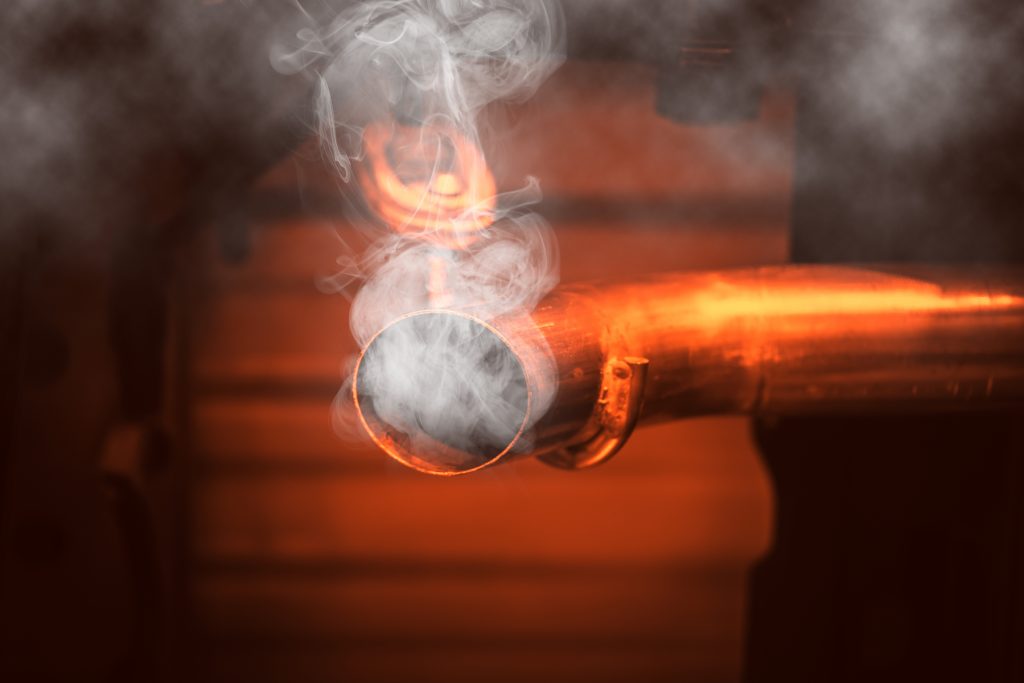Vehicles can only be as safe as the sum of their working parts. The more wrong things there are, the higher the probability of something serious happening to the drivers and passengers. Cars should be maintained regularly, and all the components checked for potential issues. When this is done, minor problems can be detected early, and significant repairs can be avoided.
Another factor to consider is the frequent use of the vehicle. The more the car is used, the more the parts could be worn down. When cars are driven past their performance peak, it may also cause damage to the engine and other components.
One of those parts that could cause severe and dangerous complications would be the head gasket. Listed here are some of the dangers of head gasket failure that could have fatal outcomes:
1. Overheating Of The Engine
Driving a vehicle while the engine is overheating could affect other car components. Damaged hoses, cylinder head damage, and eventually a broken head gasket could be some of the things to look out for when checking for overheating damage.
When the engine overheats, the anti-freeze could start to pressure the hoses due to the expansion from the heated anti-freeze. The result would be that the hoses come away from the parts they’re connected to, and it could cause leaking of the anti-freeze. The heated liquid that escapes could damage some of the other more vulnerable parts of the engine.
Cylinder heads are crafted from aluminium, which is a relatively soft metal. Made of a more delicate metal could mean more susceptible to becoming deformed, affecting its function. It may cause the vehicle to use more oil, lose power, or misfire.
A blown head gasket may cause oil and coolant mixing within the engine. If this happens, it could mean costly repairs to the transmission and other expensive parts of the vehicle.
2. Power Loss
Vehicles losing power could be because of numerous factors, but it may have an expensive repair cost when it happens due to head gasket issues. Damaged head gaskets cause the mixing of coolant and oil, which reduces the functionality of the pistons. The rings of the pistons could wear down over time, which causes pressure issues within the engine.
Drivers could put extra pressure on the engine by making up for the loss of power. In the end, they only cause further damage, which may cost them dearly when eventually taking the car to a professional for help. Some other causes of power loss could be checked at home, but when inspections were done and there was still a loss of power, it may be due to the head gasket.
Other engine parts that may suffer from the damaged pistons could be clogged fuel injectors, worn fuel pumps, and impaired valve function.
3. Contamination Of The Oil
The engine’s oil makes for smooth operation, reducing the friction between moving parts. When the oil is contaminated, it changes its viscosity and alters its performance. With less lubrication from the oil, the engine would work harder to get the same results. The hard work adds extra stress to other components and could cause more heat generation. The lack of lubrication could be a significant cause of overheating of the engine.
Increased heat could cause disfiguration of the piston chambers, valves, and other parts. The disfiguration may strain the engine, and more elements would be subject to breakages.
Damage to the head gasket could make coolant (also known as ethylene glycol) mix with the oil. The anti-freeze causes the oil to thicken and be less effective. Apart from affecting the viscosity, anti-freeze makes the oil more acidic, which may cause further structural damage to the inside of the engine.
4. Smoke From The Exhaust
Not only are giant billows of smoke unsightly, but they could also cause quite a hold-up in traffic. People are always curious, and this could lead them to cause accidents. Noticing the ball of white smoke behind the vehicle could scare the driver, and they may be unable to pull over or stop. The stress leads to a lowered concentration on the road and other road users. If severe, the smoke could reduce visibility for other road users and lead to accidents like the rear-ending because of the poor visual field.
Thick, white smoke would indicate a severe problem with the car that would have to be addressed immediately. Seeing a professional as soon as the smoke appears for the first time could prevent more significant issues.
5. Leaking Fluids
Cars have many different fluids that help them function. Water for the radiator and wipers, coolant in the form of anti-freeze, hydraulic fluids, fuel, and oils, among others, are some of the liquids commonly found in a car.
Although water may be harmless, some of the other fluids may cause environmental and health issues if someone comes into contact with them. When a head gasket is damaged, it may cause coolant and oil leaking from the car. Both of these are hazardous.
Leaking oil may lead to significant damage to the engine, radiator, and climate control systems. Oil damages the rubber hoses and seals in the motor and surrounds. An oil leak could also hold a safety hazard as it could set alight if the temperatures are too high. Burning vehicles could cause severe or fatal injuries to the car’s occupants or other motorists on the road.
Coolant leaks could make the car overheat much quicker than usual. When coolant is dripping out, air will replace it. When this happens, the air may insulate the cooling system, preventing it from getting rid of the extra heat.
Before Blowing A Gasket
Some people use this expression jokingly when they see others being upset but be assured that a blown gasket is no laughing matter. Other than the extended amount of time the vehicle would need to spend in the repair shop, it may come with a detailed, costly invoice.
There are so many things that the blown head gasket could impact that it’s hard to believe there are still people driving around without seeking professional help. Don’t be like them. Save time and money, the environment, and your pocket by getting vehicle issues sorted out as soon as possible.


